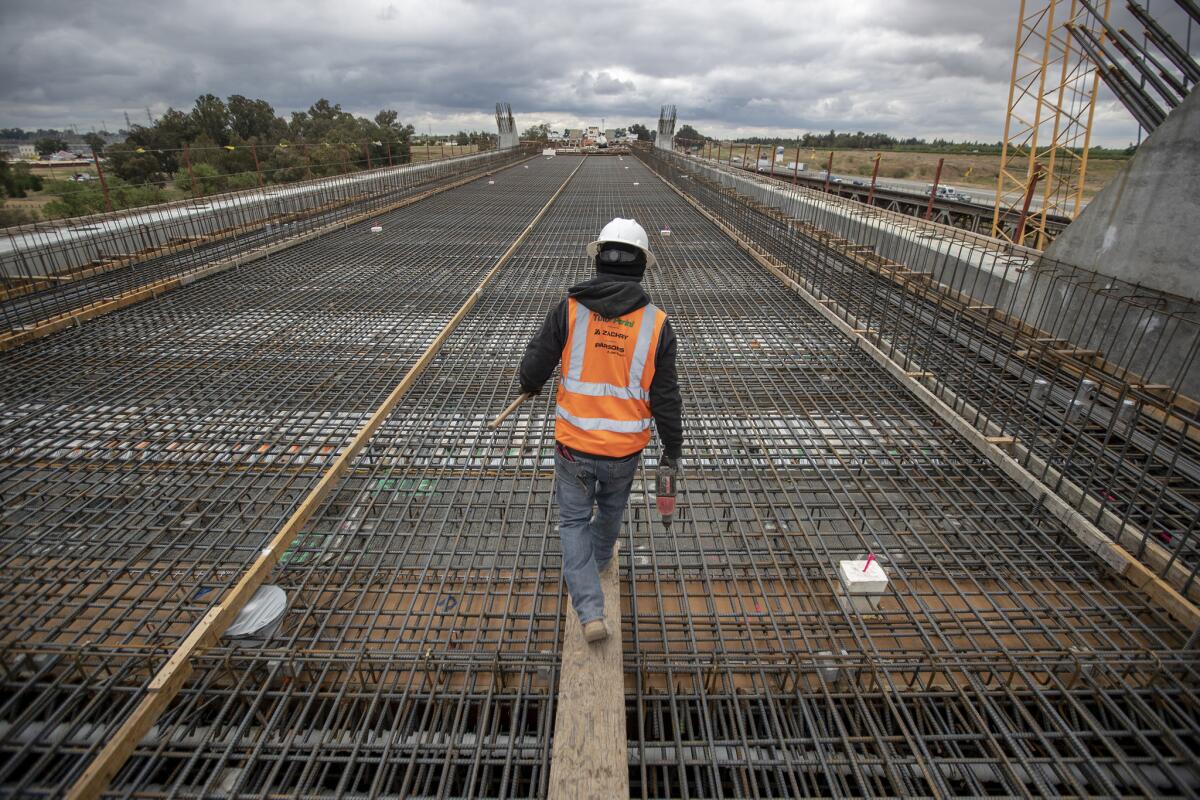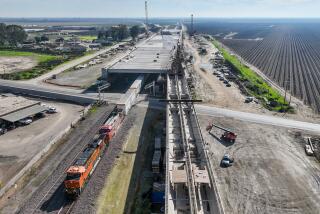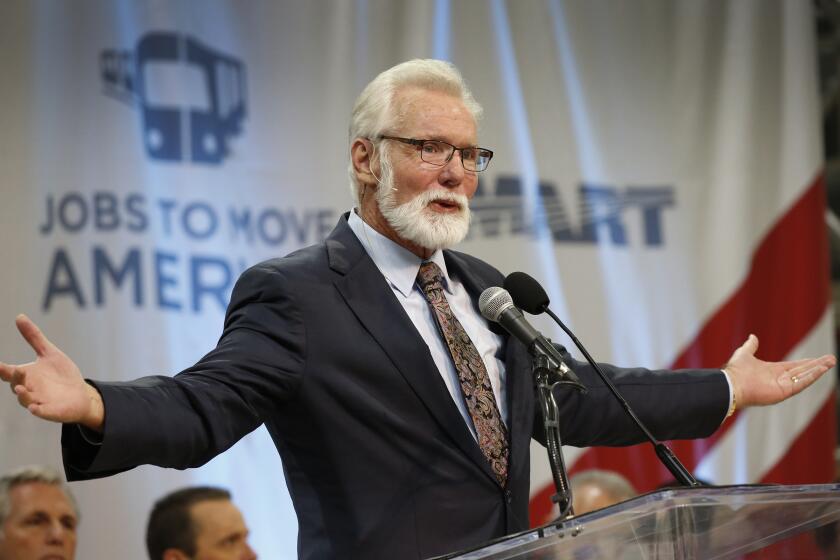California’s troubled bullet train project getting one of biggest management upheavals in years

- Share via
The California bullet train project is going through one of its biggest personnel upheavals in years, several months after Gov. Gavin Newsom vowed he would be “getting rid of a lot of consultants.”
Brian Kelly, the rail authority’s chief executive officer, said in an interview Thursday that he could not comment on three specific management moves The Times has learned about, but said some are designed to address the project’s multiple challenges.
“I am starting a reorganization of this authority so we can deliver what we have promised,” Kelly said in an interview. “And they will continue. There are going to be a lot of changes in the next few weeks and months.”
California has repeatedly rejiggered the project’s management over the years, in response to setbacks in meeting schedules, budgets and land acquisition requirements in building the nation’s first bullet train, which would ultimately connect Los Angeles and San Francisco.
The state has focused much of its recent attention on WSP, the main consultant advising the California High-Speed Rail Authority under a $700-million contract.
Roy Hill, deputy chief operating officer and WSP’s top executive in Sacramento, is absent from the project. The Fair Political Practices Commission last month launched a review into allegations that Hill had a sizable investment in a company in which he co-signed a contract modification. The agency has since expanded that review into a formal investigation, which has not been previously reported.
WSP suspended Hill in June, as the FPPC began its informal review. Sources in the rail authority say it is unlikely Hill will return to the project regardless of the investigation’s outcome. Kelly declined comment on the matter, though he said he was suspended at the rail authority’s request.
“Our view was to give him some space while they do the investigation,” Kelly said.
WSP did not respond to repeated requests for comment.
There’s been somewhat of a revolving door in filling WSP’s top job on the rail project. Hill joined the project in 2017, following Gary Griggs, Tony Daniels, Hans Van Winkle, Brent Felker and Jim Van Epps — all since about 2012.
Separately, the rail authority last week removed Kristina Assouri, the bullet train agency’s director of real property, and another WSP employee.
Assouri was the project’s top manager for land acquisitions in the Central Valley, which have contributed to lengthy delays in the project. The rail authority needs as many as 2,000 parcels stretching from Madera to Wasco. A state audit last year criticized the rail authority for allowing state employees to report to a consultant.
Kelly said that Assouri has left the project, but her employment with WSP is a private matter. WSP officials did not respond.
In addition, the rail authority earlier this week reassigned William Grimsley, who was serving as an acting or interim director in the Central Valley, according to two rail agency officials who asked for confidentiality because they are not authorized to speak to the news media. The move follows what insiders describe as a heated staff meeting in Fresno. Kelly said Grimsley remains an employee.
The changes at the authority come after a number of other high-level exits in recent months, including its Southern California regional director Michelle Boehm and its chief financial officer Russell Fong. The authority’s Northern California regional director Ben Tripousis left last year.
The recent changes have further shaken up the project’s staff, after surveys revealed long-standing morale problems among the rank and file, amid high turnover rates.
“So much drama,” said one manager.
The rail authority is having difficulty recruiting employees, reflected in as many as 40 vacant staff positions out of an authorized staff of about 220.
Kelly was appointed chief executive in January 2018, amid high hopes that he would overhaul the organization and quickly solve long-standing problems, but he became seriously ill in September 2018 and returned to work full time at the beginning of July.
In the interview, Kelly vowed to resume the intensive changes he had begun before September and said he had initiated “a division by division review” of job functions. The review is examining which jobs should be performed by state staff. In an interview last year, Newsom said he planned to get rid of a lot of consultants, a goal that Kelly said remains in place.
Hill’s ethics inquiry came out of left field when Assemblyman Jim Patterson (R-Fresno), a long-standing critic of the project, filed an ethics complaint with the FPPC.
It alleged that Hill had co-signed a contract modification for a construction team that included Jacobs Engineering, at roughly the same time he may have owned more than $100,000 of stock in the company, based on a financial disclosure that he filed.
More to Read
Sign up for Essential California
The most important California stories and recommendations in your inbox every morning.
You may occasionally receive promotional content from the Los Angeles Times.











